At last the hellebores are all out, the lovely sunshine and warmer temperatures last week have encouraged them to open up and the bees are making the most of every opportunity for a good feed.
The flowers are all so beautiful and the best way to see them together and compare their differences is to cut just one flower from each plant and float them in a bowl of water – don’t they look just like fantastic miniature waterlilies ?!
When buying hellebores these days, the choice is so bewildering – which to choose – singles, doubles, anemone centred or dark veined. And then there is the choice of colours from white through to almost black – with spots or without !!!
The whites show up so well against the soil.
They come heavily spotted with pink…
or with pale pink spots they look very delicate as if they should be sheltering from the cold winter wind.
When they are double, they look like ballerinas tutus,
and some come with dark nectaries.
Then come the creams, darkening towards yellow.
Some yellows are quite a deep colour, some with red spots,
and some are so frilly they dance madly in the wind.
There is an enormous choice in the colour pink.
Singles.
Doubles.
Veined.
Anemone centred,
or double white inside and pink outside – gorgeous!
The pinks darken into burgandy, the singles show the pale stamens so clearly,
and the doubles look as scrumptious as blackcurrant fool.
Even darker are the ones that are almost black – they have a bloom on the petals like a luscious plum or grape – which I’m sure would show a fingerprint if you touched them. I surround mine with snowdrops so that they show up better against the soil.
They are all so beautiful, where will the breeders go from here, creating even more wonderful plants to tempt us, but you must choose them when they are in flower. Years ago, when I first started buying them, you could buy named varieties, but now nurseries are selling them as seed strains, which they know will come true. Buying a named variety means it should have been split vegetatively and not be the seedling of a named variety. If you buy an Ashwood seedling or Blackthorn seedling, for example, you know you are buying something special because they have spent years making sure that their seedlings come true to form. Also this means that they are cheaper than named forms and therefore you can buy more !!!



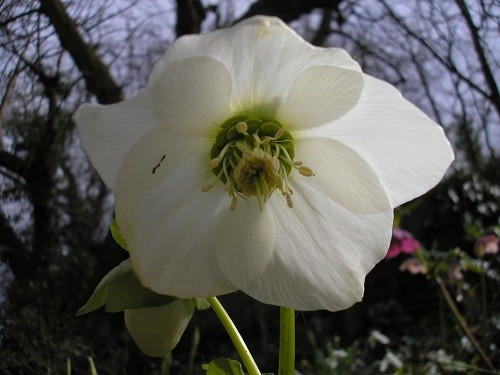


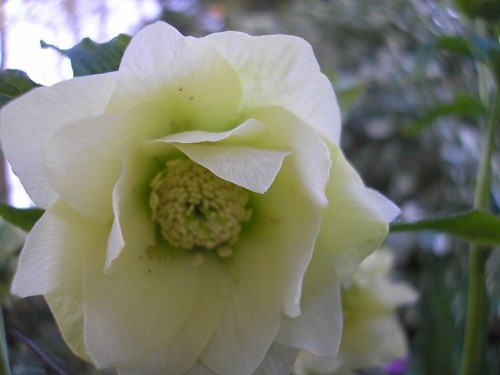
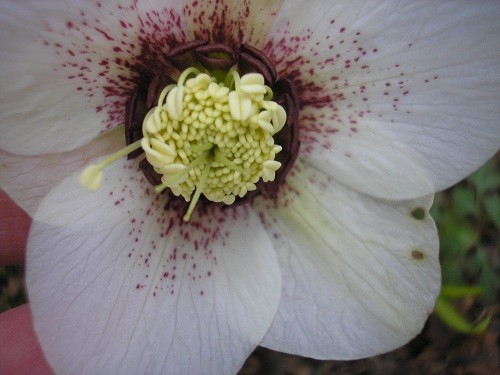


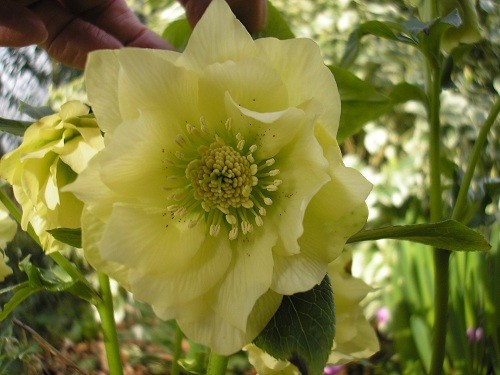
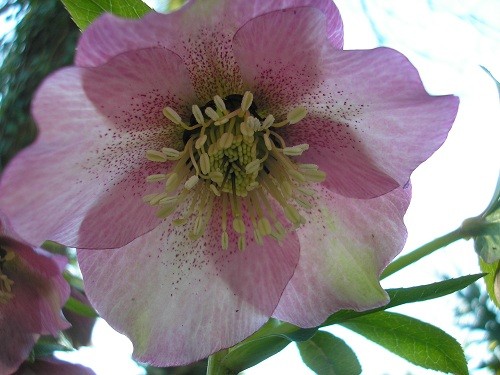


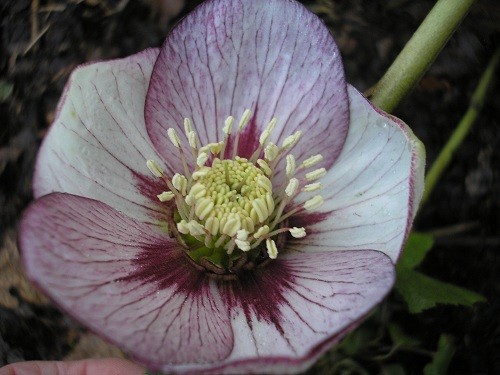
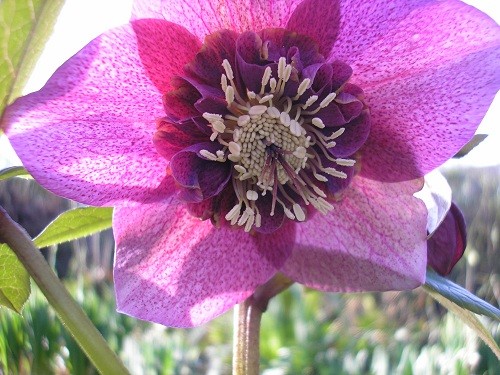
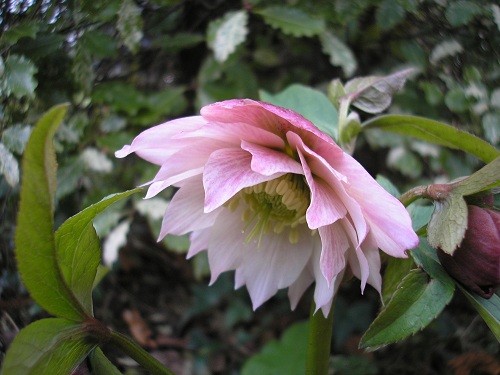

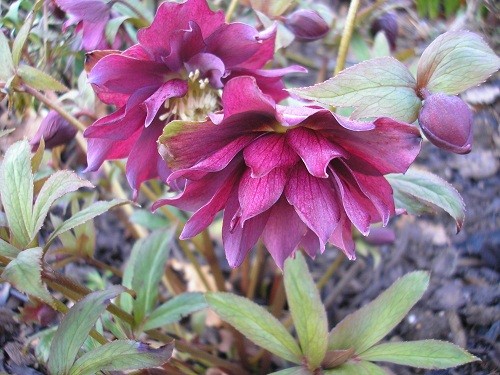


I am enjoying reading some of your earlier posts. Now I want your helleborus collection.
Hellebores are addictive aren’t they and all so beautiful. We have some super nurseries over here who have spent years breeding some amazing varieties. They are so tempting when we visit, would love to bring them all home !!
What a gorgeous collection of hellebores. I have the impression that mine tend to all turn to pale pink over the years. Is that possible? Maybe I need to buy some new ones.
Barbara – thank you. I find that if I allow mine to go to seed then they seem to revert to pink or white, they never come the same as the mother plant. Now is the time to deadhead them all, this also saves the mother plant wasting energy making seed, instead she can build up into a super plant. I then have an excuse to buy 2 or 3 new ones each winter !!